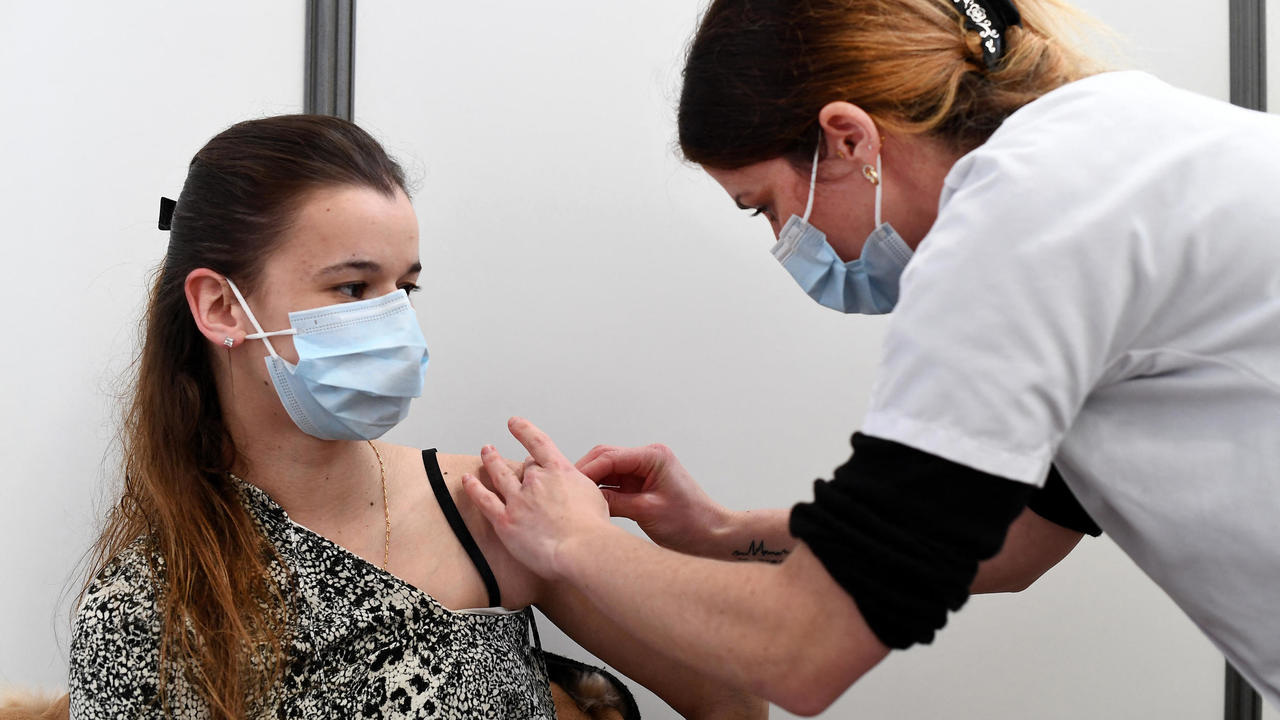Covid-19: France fears a summertime vaccination plateau due to anti-vax sentiment

Issued on: 30/05/2021 – 18:30
All adults in France will be eligible for the Covid-19 vaccine starting on Monday. But doctors warn that the country’s vaccination efforts could slow down significantly by this summer after all those willing to be vaccinated have done so – leaving just vaccine sceptics and people with limited access to healthcare. The French Academy of Medicine is now pushing for mandatory vaccination – but the French government has so far remained steadfast in its refusal.
Starting on May 31 every French resident 18 or over will be eligible to receive a Covid-19 vaccine, a new and essential step in bringing an end to the pandemic. But this new threshold also brings new challenges for health officials: ensuring people manage to book both vaccine appointments within the recommended period of time and making sure no one is left behind – but also convincing those who remain hesitant about inoculation.
French authorities are, nevertheless, feeling confident now that the country’s once slow vaccination campaign has reached cruising speed. And although 20 million more people will become eligible this week, vaccination centres are promising a boost in logistics, with more doses being delivered daily and the Moderna vaccine becoming available for use in pharmacies and by general practitioners at their offices.
“Everything is being done to vaccinate and to vaccinate quickly. We are upholding our commitments,” Health Minister Olivier Véran told BFMTV in an interview on May 17.
More than 25 million people have received at least one dose in France as of May 28, equal to 47% of the adult population. But doctors are increasingly warning that the vaccination effort could reach a plateau in the coming weeks.
“When we have finished vaccinating all those who showed up voluntarily, we’ll need to reach out to the other ones,” said Vincent Maréchal, virology professor at the Paris-Sorbonne University, in an interview with FRANCE 24 in late April. “We will have to seek out all those who have been overlooked by the healthcare system and those who are usually reluctant to get vaccines.”
Such a slowdown has already been observed in the United States. By mid-April, almost 50% of the American population from 18 to 64 had received at least one jab. But since then the pace of vaccinations has drastically slowed. After reaching a record of 3.38 million doses per day in late March, the number of people getting a first (or single) vaccine dose fell by about 50 percent from April 13, according to the New York Times.
The United Kingdom and Israel have seen a similar slowdown in vaccinations after initially successful nationwide campaigns.
‘Reduced mobility’
“We know that some groups are not fully vaccinated even though they should be. Some 25 percent of those over 80 have not received even a single dose, even though they are in the top priority group,” said Alain Fisher, president for the Vaccination Strategy Orientation Council, in an interview with L’Express magazine.
“These people have often reduced mobility, so they are not very likely to go to a vaccination centre or even to their doctor’s office. It has now become essential that health workers visit them. But that takes time,” Fisher added.
Vaccination efforts among the elderly also seem to show signs of stalling. According to the Health Ministry, there has been no uptick in vaccinations among those 70 or over, with vaccination rates remaining at 82.2 percent among those between 70 and 74 and at 79 percent for those over 75.
Experts are also worried about those who may be in socioeconomic distress. “Most of them will not make the effort to get vaccinated by themselves, simply because they don’t feel concerned about all this,” Maréchal said. “And that is when local authorities can play a role.”
The French government has already tried to tackle the problem via telephone and text message campaigns. In the Seine-Saint-Denis region, officially France’s poorest, authorities established vaccination hotspots in some neighbourhoods where people can get a jab without an appointment. Advertising campaigns were also launched in public spaces to raise awareness.
‘Anti-vaxxers’ in the homeland of Pasteur
But the biggest challenge might yet be vaccine scepticism. An opinion poll by OpinionWay showed that 20 percent of French people over 18 years old refuse to get vaccinated while 13 percent say they are undecided. According to figures from the French Public Health agency, the situation might even be worse: 44 percent of those surveyed say they will not get vaccinated.
Although the homeland of Louis Pasteur has often been somewhat hesitant about vaccines, confidence in the Covid-19 jabs has increased since January. But the “anti-vaxxers” could, nevertheless, prevent France from reaching herd immunity. According to the French Academy of Medicine, the country must vaccinate 90 percent of its adults, or 80 percent of the whole population, to vanquish the Covid-19 crisis.
In a press release published on May 25, the Academy recommended making vaccination mandatory – first to essential workers such as healthcare staff or teachers, then to those whose professions bring them into contact with the public, and, lastly, to students.
>> Why are the French so sceptical about vaccines?
For now, the French government has refused this recommendation and remains hopeful. “Our belief is that, since the start of this crisis, what is most effective is to rely on trust and belief,” French President Emmanuel Macron said Thursday before adding that “no door is closed”.
But the arrival of the Covid-19 health pass could also prompt more people to seek out vaccinations after it comes into effect on June 9, requiring those attending large public events to prove they are vaccinated. Airlines are also increasingly likely to require “vaccine passports” in the future.
Some have been pushing for governments to offer more incentives to encourage people to get their shots, such as offering gifts or other advantages. To meet President Joe Biden’s goal of 70 percent of adults receiving at least one shot by US Independence Day on July 4, some US states have established lotteries or scholarships for vaccinated people, with millions of dollars at stake. Others, such as New Jersey, have offered free beer. And several sports leagues have promised free tickets to games if you can prove you are vaccinated.
This story was translated from the original in French.
*** This article has been archived for your research. The original version from FRANCE 24 can be found here ***


